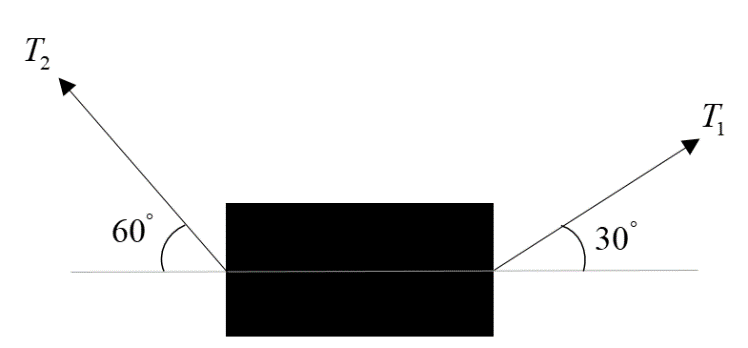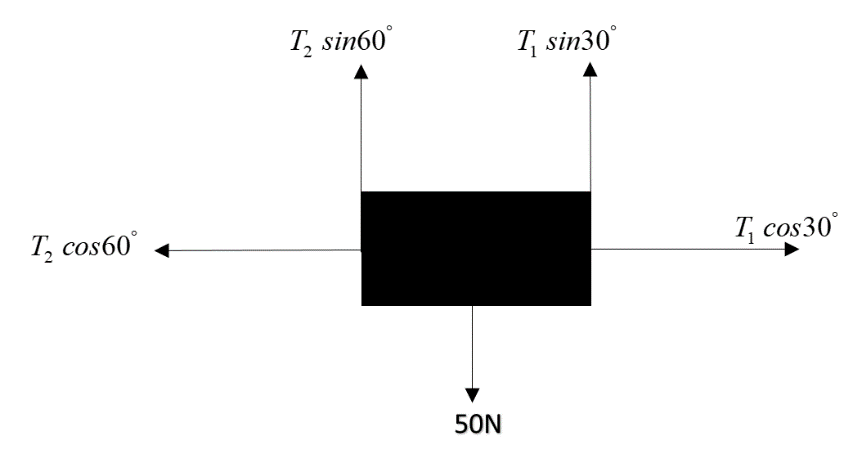Question
Question: A body of mass 5kg is suspended using string making an angle \(30^{\circ}\) and \(60^{\circ}\) with ...
A body of mass 5kg is suspended using string making an angle 30∘ and 60∘ with the horizontal then:
A. T1=25 N
B. T2=25 N
C. T1=253 N
D. T2=253 N

Solution
This type of question can be easily solved by drawing the free body diagram of the block and applying the equilibrium equations in x and y directions. Since we are not given the information about motion, we will assume the block to be at rest. Hence the net force in x and y direction is zero.
Formula used: ∑Fx=0,∑Fy=0
Complete step by step answer:
First of all drawing the free body diagram of the block, by resolving the forces into x and y components:

Now, writing equation for x direction:
T2cos60∘=T1cos30∘
Or 2T2=2T1×3
Hence T2=T13
And writing the equation of force in y direction:
T2sin60∘+T1sin30∘=Weight=50N
Or T223+2T1=50
Or T23+T1=100
But T2=T13
Hence T1(3)+T1=100
Or 4T1=100
T1=25N
And hence T2=T13
So, T2=253N
So, the correct answer is “Option A and D”.
Note: Here it is important to note that the given block was freely suspended. That’s why we took its acceleration zero (both in x and y directions). That also means that the net force is also zero asFnet=m×a. When a block is suspended in air using some technique, if it is at rest, without motion, then we can say that the block is under transitional and rotational equilibrium i.e. the sum of forces along any given direction is zero and also the sum of moments about any given point is zero. This concept can be easily applied to solve any level of questions.
